1. Anti-red tape ministry advises against anti-red tape bill (The Post, Andrea Vance)
David Seymour's anti-red tape ministry says his new bill to slash red tape is unnecessary.
An interim regulatory impact statement from [The Ministry of Regulation] said while it supports the overall objectives [of Seymour’s bill], it says the legislation isn’t needed.
It’s preferred option is to build on, and strengthen, an existing regime from legislation passed in 2019.
This would “achieve many of the same benefits,” and “The Ministry also considers this option would impose fewer compliance costs on government agencies.”
Seymour rejects his officials’ advice:
“This Government is levelling the playing field whether the bureaucracy likes it or not. Come to think of it, it’s probably better if they don’t.”
Green party public service spokesperson Francisco Hernandez said:
“The Minister seems to be confused. The advice he's referring to come from his own Ministry for Regulation and if he doesn't think his department's advice is credible then he should shut it down.”
Comment: In a select committee from August, David Seymour told members the key function of his Ministry of Regulation was to ensure proposed laws made sense and provided value and effiiency.
Therefore, why is he now painting his own department’s advice - and doing what he set them up to do - as useless and irrelevant?
2. A huge DoC reset is on the cards, but will it affect conservation or your next tramp? (NZ Herald / NZME - Chelsea Daniels)
Over the coming weeks, many Kiwis will be heading to our national parks and great walks for their summer holidays.
But if you’re doing so for a cheap summer break, enjoy the free ride while it lasts.
The Department of Conservation (DoC) is $1.65 billion short every year on what it needs to cover its responsibilities – and that’s just for biodiversity
The Government is looking at several ways to swell DoC’s coffers. At the moment, its annual budget is about $650 million.
Conservation Minister Tama Potaka is driving a series of proposals including access charges, more forestry on DOC land, new fees for mining and higher fees for popular huts and campsites.
NZ Herald writer Derek Cheng told The Front Page the gap between DoC’s budget and what it needs is widening – making its biodiversity work and the upkeep of the visitor network fall increasingly behind..
“DoC’s already shed 130 jobs this year to meet its savings target. It’s scaled back some of its climate change work. It’s slashed some of its biodiversity programmes. It’s trying to meet the fiscal restraint and, at the same time, the gap between the money it has, which is flatlining in coming years, and the money it needs, which is billions a year, to be frank, is widening and widening,”
Potaka… wants DoC to be financially sustainable by 2026, but the abyss between the amount of money it has and what it needs is growing wider, exacerbated by hefty bills following extreme weather events…
Cheng said Forest and Bird has told him that in general, Kiwis love nature and they value it.
“Doc recently said that conservation-related tourism is worth about $4b a year. Yet the Crown only puts just over half a million dollars a year into DoC.
Does that make sense? We know it’s financially hard at the moment. The economy’s really struggling. Departments are told to cut jobs, trim fat, and cut the back office. But, in terms of how much money they give to DoC, does it reflect how Kiwis feel about nature?”
3. Govt moves to slash insulation costs, change standards (The Post, Luke Malpass)
The Government is proposing an overhaul of the nation’s strict insulation regime - introduced just a year ago - to drive down building costs while also maintaining reasonable standards.
The Ministry of Business Innovation Employment will today release a consultation document on the H1 insulation review…
The proposals are the latest in a raft of company-level changes by the Government aimed at driving down building costs.
In late October, Penk announced that properly licenced builders with appropriate insurance would be able to “self-certify” their work…
[I]t has been difficult terrain for Penk who signalled potential insulation changes in July only to upbraided by some in the industry.
At the time Green Building Council boss Andre Eagles said that it was “unbelievably short-sighted” and would amount to “effectively ripping insulation out of children’s homes”.
The new policy will go out for consultation today and run until February 2025.
Comment: The owner of Stuff / The Post, Sinead Boucher is part of a Wellington right wing pressure group.
Malpass is The Post’s Political, Business and Economics Editor.
The article continues below for paid subscribers. Thank you.
4. The government's targets in charts: More than half behind track (RNZ, Farah Hancock)
More than half the government's key targets are behind track or at risk of not being met, RNZ’s latest progress update shows.
While the educational achievement and Jobseeker targets are classified as 'at risk', three other health and crime targets are considered 'feasible' - meaning they are still possible but are behind schedule and face "major risks and/or issues''.
Comment: These KPIs aren’t complex, and they lack nuance e.g. “ED patients seen within 6 hours”
This KPI doesn’t show what happens afterwards, whether patients are simply transferred or registered or treated - nor does it account for any critical points of care.
The KPI also fails to recognise that as the government e.g. brought back prescription fees, cancelled the Maori Health Authority, cancelled Smoke Free generation, refused to adequately fund GPs, started hiring freezes, introduced school lunches without nutritional guidelines or content, cancelled cycle ways etc. those would inevitably impact our health as a country - and people seeking ED support.
On the most “successful” KPI i.e. emergency housing - that has fallen because the government has tightened criteria leading to a halving of applications, and tripling of rejections.
Social Housing Minister Tama Potaka boasted that the number of children in emergency housing has dropped, but doesn’t know where many of them went.
There is a reason companies don’t allow employees to self-select their KPIs.
5. NZ joins new group that 'might be answer' to US exhausting weapons in a war (RNZ, Phil Pennington)
New Zealand has joined a new United States-led Indo-Pacific group that "directly supports" America's national industrial defence strategy to boost "warfighting" capabilities.
The US says the new Partnership for Indo-Pacific Industrial Resilience is about "better integrating our defence industries".
The 13-country group was set up in June and had its first meeting, hosted by the US military, in Honolulu in October…
New Zealand has quietly joined the group at the same as a public debate carries on over whether to join Aukus Pillar Two, itself a pact of sharing advanced military technology…
Military trade news media in the US, which analyses Department of Defence moves, explained: "As weapons demand surges amid the Ukraine war, conflict in the Middle East and rising power of China, the Pentagon has been casting about across the world in search of new partnerships for weapons production."
6. Greens claim they can better NZ's emissions reductions five-fold and improve the economy (RNZ)
The Green Party's new plan for tackling climate change will cut five times more carbon emissions than the government by 2030, it says.
The party released its own Emissions Reduction Plan - He Ara Anamata on Sunday, saying people and the health of the planet need to be fostered together, or both would be exhausted.
Party co-leader Chlöe Swarbrick said acting in the best interest of both the environment and the economy was possible…
Proposed policies including improved regional rail connections, the re-introduction of the clean car discount, increased renewable electricity, clean heating subsidies for rooftop solar and energy efficiency, and a sinking lid cap on synthetic nitrogen fertilisers…
Swarbrick said it was vital to act quickly:
"[The plan is a] blueprint re-imagining our collective future…
Grounded in Te Tiriti o Waitangi, He Ara Anamata shows how we can achieve robust, systemic change that cuts pollution at the source, working with nature every step of the way.”
7. Aid projects to be cut after NZ digs itself into a hole (Newsroom, Sam Sachdeva)
New Zealand’s international aid programme appears set for cutbacks, with a review concluding the Government should streamline the range of activities it funds.
Foreign affairs officials have told MPs that finding cost savings was not the motivation for the work, but exactly what the recommendations mean for the country’s aid budget remains to be seen…
In July, Newsroom revealed Foreign Affairs Minister Winston Peters had commissioned a review of the country’s aid programme, following disappointment from NGOs about a lack of new funding in May’s Budget…
One large unknown is whether the coalition will renew the $1.3 billion climate aid programme announced under the last Labour government, set to expire in 2025.
The ministry’s chief executive Bede Corry said officials were in the middle of Budget discussions about “the future climate finance trajectory”, and were aware of the importance Pacific nations placed on such aid.
8. Winston Peters pushes for TAB to cover online betting industry (RNZ)
Racing Minister Winston Peters wants to bring in legislation to extend the TAB's current monopoly over sports and racing betting to also cover online betting.
The TAB was established to fund the racing industry, and it provides 90 percent of the industry's revenue.
Peters said the legislation he is introducing will amend the Racing Industry Act 2020…
The Bill will be referred to the Governance and Administration Committee for a select committee process.
9. Grass is not so green for influx of young migrant workers (Newsroom, Fox Meyer)
Young migrant workers are coming through the country’s international arrival gates in sufficient numbers to replace the high numbers of outbound New Zealanders going the other way.
But they’re arriving to a strained job market, with unemployment forecast to hit 5.2 percent or more in this coming year.
And new changes to immigration settings mean partners of some migrant workers will have open working rights, so they too will be looking for work. One economist hopes the new migrant workers could help balance a “skills mismatch” that currently results in both high unemployment and unfilled job postings….
As Newsroom reported in August, the 25-29-year-old age bracket was leaving at the highest rates, with an annual running total of 24,665 in May..
The departure rate in September 2024 was still 45 percent higher than it was in September 2019, [but believed to be plateauing.]..
Since Newsroom last covered the subject, the arrival rate of anyone aged 30 years and above has flatlined, while the 20-29-year-old bracket has risen sharply…
International workers have begun to enter the New Zealand workforce faster than their Kiwi counterparts are leaving – especially those under 30.
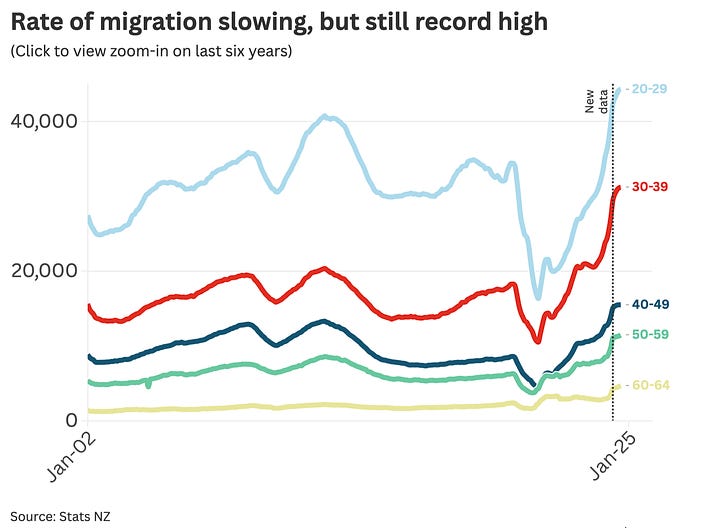
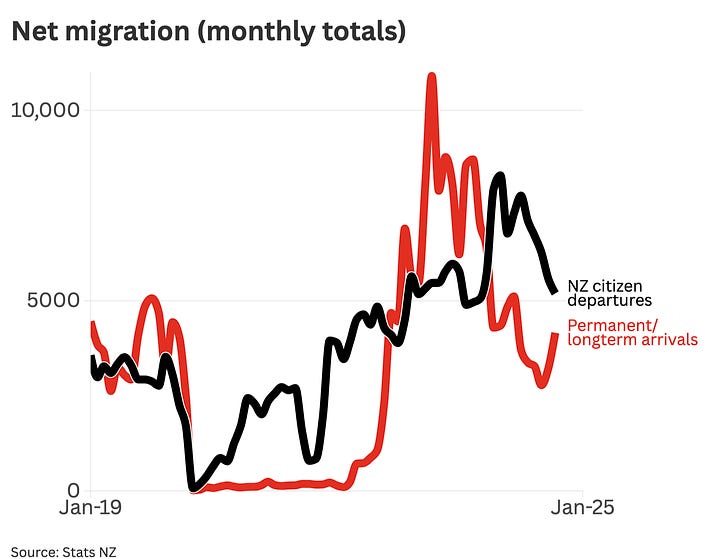
10. Iwi cold shoulder forces Govt to change engagement (Newsroom, Laura Walters $$$ Paywall)
The Government has been forced to find a workaround after the National Iwi Chairs Forum officially uninvited the Prime Minister and his ministers from future forums.
According to briefing documents, Te Arawhiti (the Office for Māori-Crown Relations) recommended the Government change the way it engages with the Iwi Chairs Forum by suspending engagement at the top level of Government.
But it will continue separate quarterly hui between ministers in specific policy areas and the relevant iwi leaders (pou chairs).
11. 'I'd do it again and again': Hana-Rāwhiti Maipi-Clarke talks to John Campbell (1News / TVNZ, John Campbell)
There is just one New Zealander among the BBC’s 100 Women for 2024 – the broadcaster’s annual list of “100 inspiring and influential women from around the world”.
Hana-Rāwhiti Maipi-Clarke.
“Maipi-Clarke is," the BBC declared, “a passionate advocate for Māori rights, cultural preservation, and environmental issues.”
This would be the same Maipi-Clarke who received, as the BBC mentioned in its commendation of her, “the prestigious One Young World Politician of the Year award for her efforts to amplify young indigenous voices in politics.”
This would be the same Maipi-Clarke whose haka in opposition to the Treaty Principles Bill, performed in Parliament on November 14th, had been viewed 700,000,000 times globally within less than a week. It could now reasonably be expected to have topped a billion viewings.
The haka as brand Aotearoa.
A vision of this country the world typically embraces, to such an extent that no lesser publication than The Atlantic wrote:
"The All Blacks' rendition of the haka is indeed a superb act of nationalism, but also a heartening example of postcolonial cohesion."
This would be the same Maipi-Clarke suspended from Parliament and docked a day’s salary, for behaviour described as “appalling”, “disrespectful” and “grossly disorderly”.
“She’s that very young MP for the Māori Party”, journalist Barry Soper said, speaking of Te Pāti Māori on Newstalk ZB. “I’ve never seen hatred like that in Parliament before.”
Full piece: here







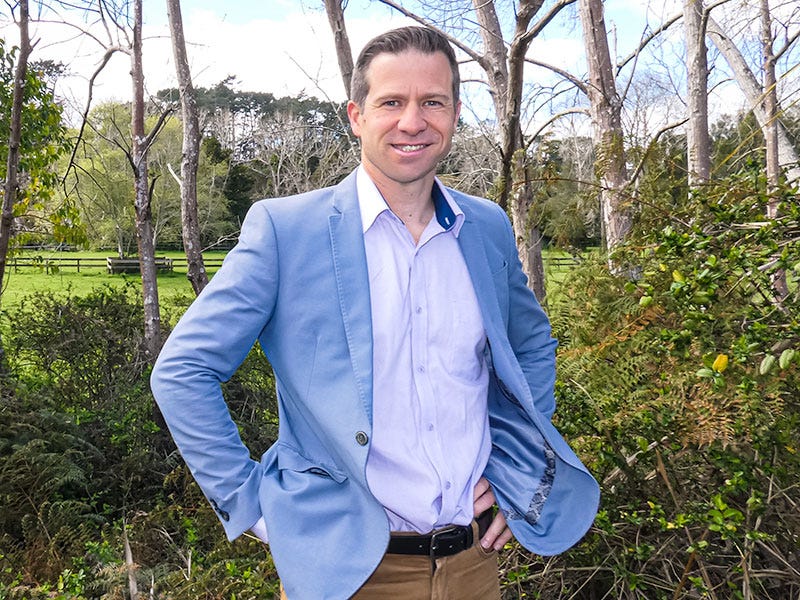
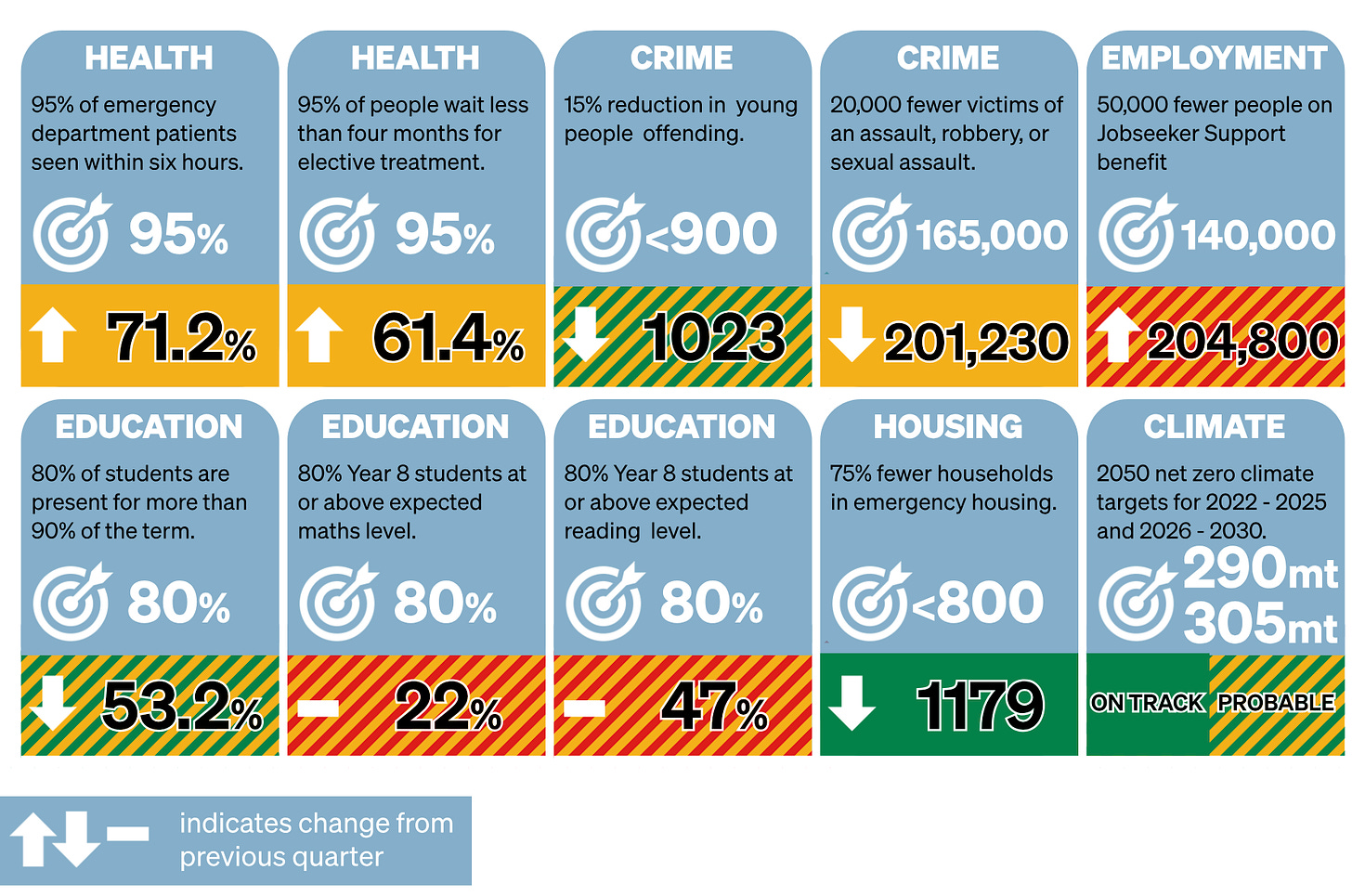
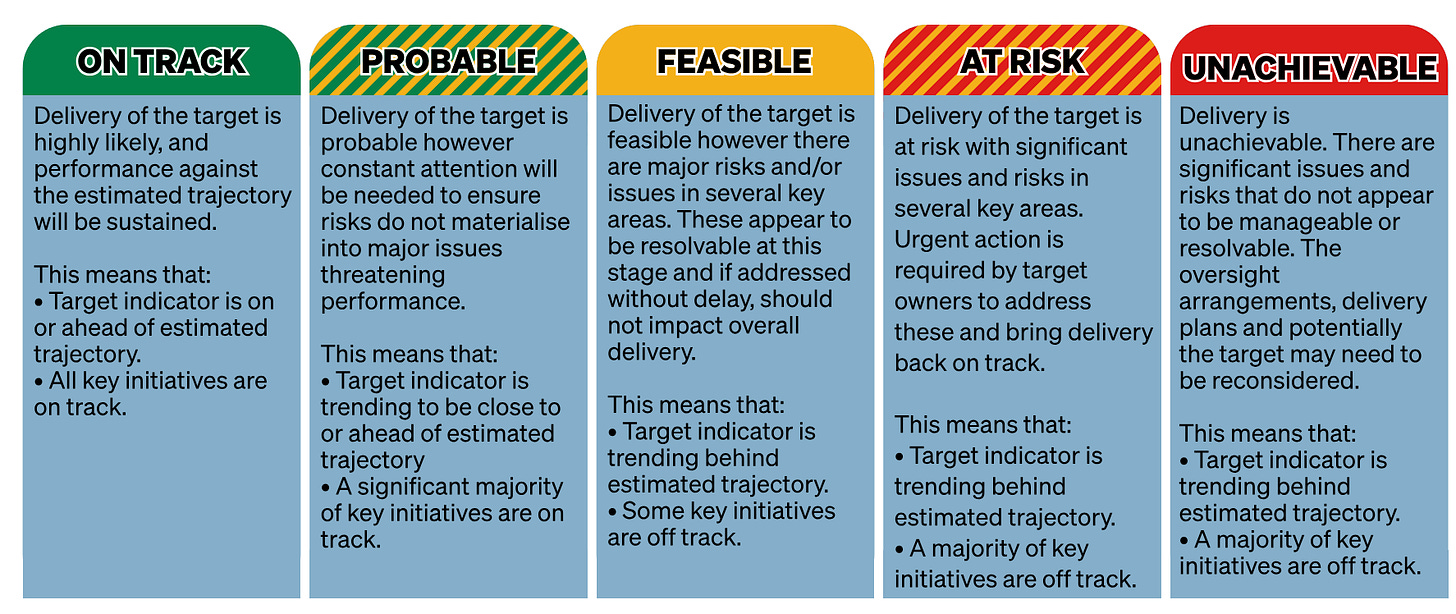


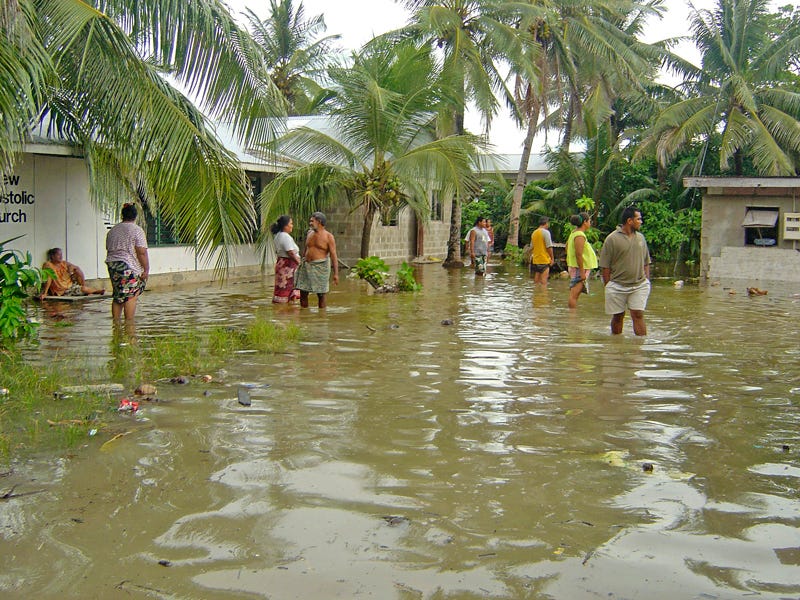
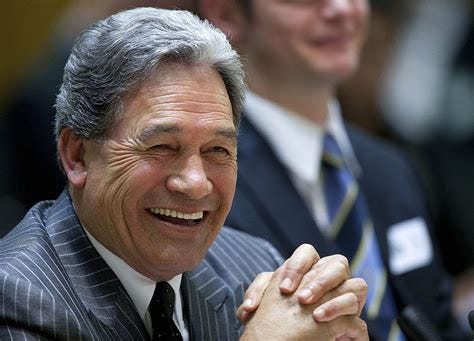




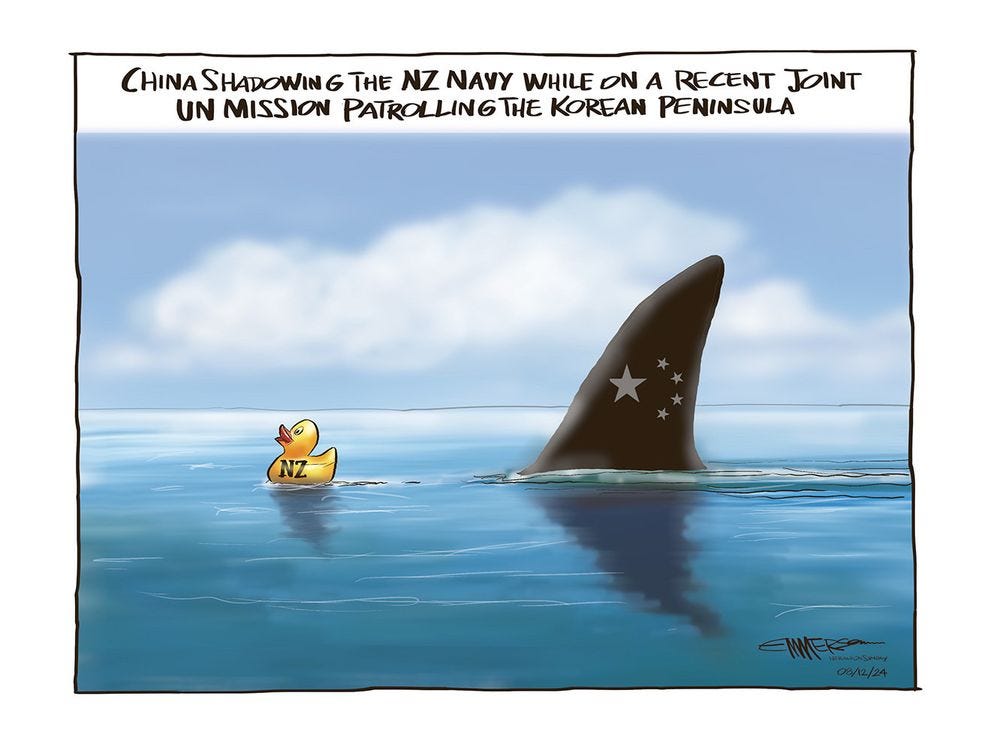
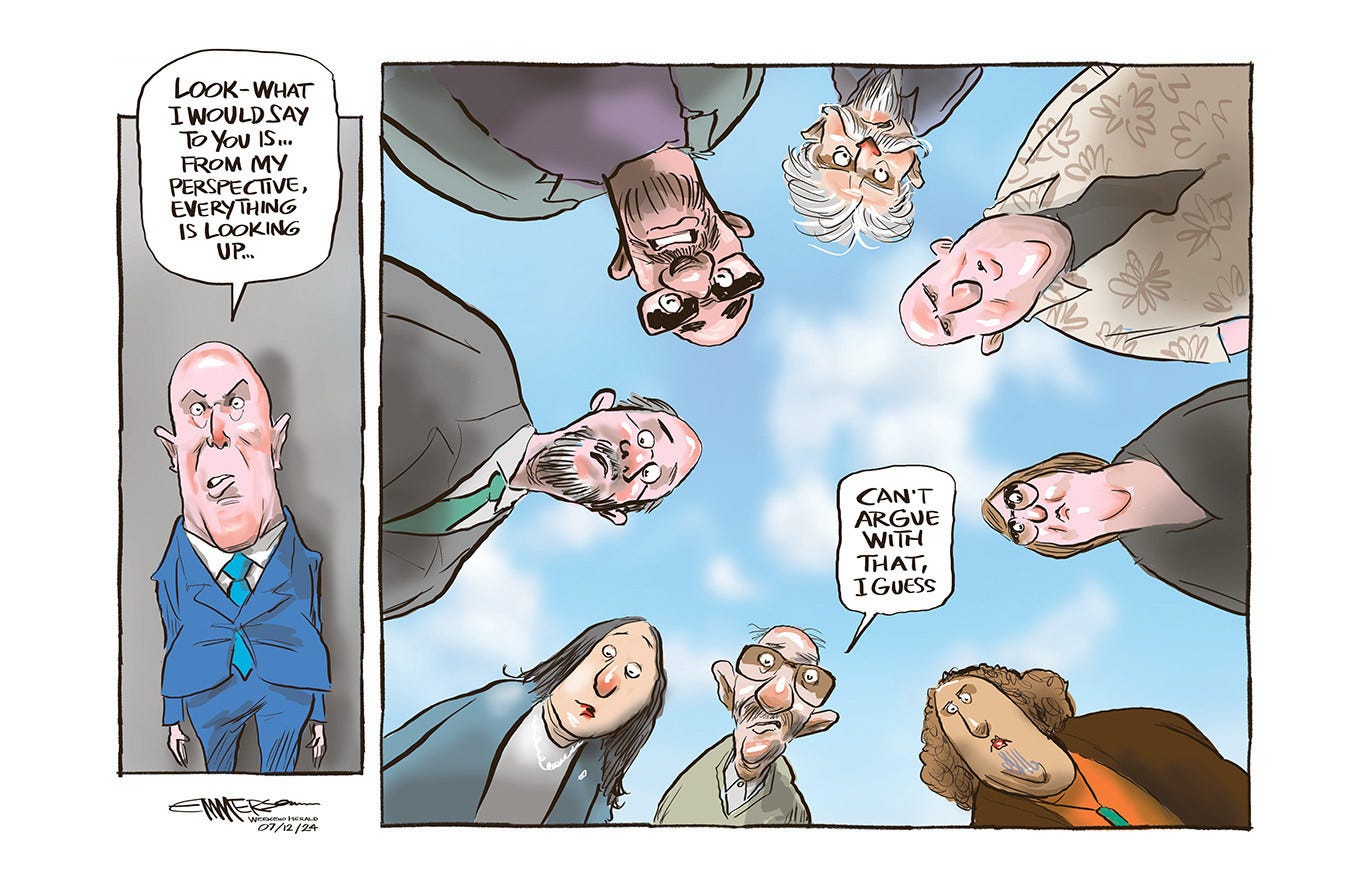
Whenever I consider that Judith Collins is STILL in Parliament and STILL has cabinet positions of important nature, it reminds me just how bankrupt the National Party and this government is of talent, honesty and intelligence. And don't get me started on Chris Penk!
An excellent roundup, ngā mihi. Tama Potaka is dangerous in all of his portfolios. Hope he doesn’t use DOC huts for emergency housing…